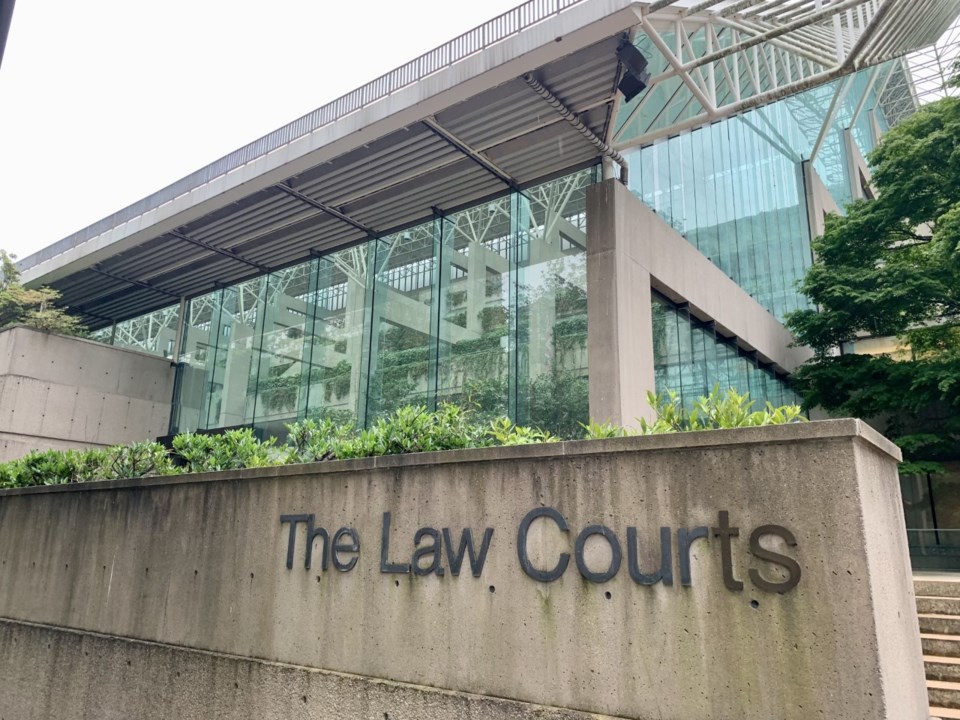A lawyer applying to have Ibrahim Ali's first-degree murder conviction thrown out because of court delays says the judge and prosecutors in the case should have done more to find out why Ali's original legal team quit 23 months after taking the case.
A B.C. Supreme Court jury found Ali guilty in December of first-degree murder in the death of a 13-year-old girl, whose body was found in Burnaby's Central Park on July 18, 2017.
His lawyer, Kevin McCullough was in court Tuesday to begin a so-called "Jordan" application to have his conviction thrown out because of court delays.
McCullough calculated it took five years, two months and 29 days (63 months total) from Ali's arrest in September 2018 to the end of his trial – more than twice as long as the 30-month ceiling set by the Supreme Court of Canada for cases in superior courts.
Ali has been in custody the whole time.
Canada's Charter of Rights and Freedoms guarantees the right to a trial within a reasonable time.
If a delay is judged unreasonable, the court must throw out the conviction.
The first step in determining whether a delay has been unreasonable is to subtract "defence delays."
Taking the court through excerpts in nearly 4,000 pages of scheduling transcripts, McCullough argued the defence was not responsible for the bulk of the delays.
Before delving into the transcripts, he said he expected they would show a Jordan delay of "at least" 52 months.
"In this case the defence at all times was seeking to have the trial sooner rather than later, at all times was pressing for trial," he said.
McCullough argued the delays could have been mitigated with better "case management" on the part of B.C. Supreme Court Justice Lance Bernard long before the actual trial, which finally started in April 2023.
As an example, McCullough returned multiple times to August 2020, when Ali's original defence team applied for the case to be adjourned because they were double-booked with another case.
The Crown opposed that application and Bernard dismissed it.
Later that same day, the defence team sent the Crown an email saying they were quitting "for ethical reasons," according to McCullough.
He said it was "obvious" Ali's original defence team stepped away because their adjournment application had been denied, and he argued the Crown and court should have done more to figure out whether that was the case and then tried to find a solution instead of letting Ali's lawyers quit.
McCullough argued the Crown and court should have been able to foresee that denying the adjournment and allowing the original defence team to quit would lead to what happened – "years of delay."
McCullough noted one member of Ali's original defence team, Veen Aldosky, could communicate with Ali in his own languages, Kurdish and Arabic, whereas his current legal team has had to rely on interpreters.
He further noted, 23 months after his arrest, Ali lost a defence team already familiar with the case, and a new team had to get up to speed – all while the 30-month ceiling was "just around the corner."
Going through the transcripts, McCullough also noted multiple occasions when Ali's original defence team complained about not having full disclosure from the Crown.
(The Crown has a duty to provide the accused with copies of all information and documents related to their case, including the charge and the evidence against them.)
McCullough pointed to an appearance in B.C. provincial court on Aug. 15, 2019, during which a judge raised concerns about the "trickle" of disclosure from the Crown to the defence.
At that hearing, Crown prosecutor Daniel Porte said the Crown had been "very responsive," but the judge cut him off, according to the transcripts.
"I have concerns," the judge said. "The individual is in custody on a serious charge. The matter should be moving forward."
Ali's delay application is scheduled for nine days.
McCullough continues his argument today (April 3).
Follow Cornelia Naylor on X/Twitter @CorNaylor
Email [email protected]




